Elpis1988
A thoughtful writer, and contributor to The Artifice.
Contributor II
- Plebian Penman
- Common Writer
- Lurker
- Pssst
- Hand Raiser
- Sharp-Eyed Citizen
- Town Watch
- Actor
- ?
- Articles
8 - Featured
8 - Comments
25
- Ext. Comments
25 - Processed
16 - Revisions
11
- Topics
6 - Topics Taken
2 - Notes
10
- Topics Proc.
18 - Topics Rev.
4
- Points
1553 - Rank
89 - Score
762
Latest Articles
Latest Topics
Political Revolution and The Act of ReadingFahrenheit 451 focuses on the burning of books. In this fictional world, the owners of books and their homes are burnt and book ownership is seen as the root of unhappiness within society. During the period of the Enlightenment, books were a driver of change as new works like Thomas Paine's Common Sense shaped ideas like liberty for the American public and led to American independence. More people read than did anything else during this period of change and political foundation for Western democracy. How is the act of reading linked to revolution in books like Fahrenheit 451 and what does this tell us about the importance of reading for the modern era?
|
Depictions of Space Flight in FilmScientists have spent a lot of time shaping films concerned with space flight in science fiction. NASA spent a lot of time advising the producers of the 2015 film Martian. Kip Thorne, a theoretical physicist, shaped Nolan's Interstellar (2014) to make it an accurate depiction of time dilation consistent with Einstein's Special Relativity. Kevin Grazier, a planetary physicist who worked on the Cassini/Huygens Mission to Saturn and Titan, also advised the producers of the 2013 film Gravity. How have the interactions between scientists and filmmakers shaped the depiction of space travel in science fictions films on different occasions?
|
Depictions of Nuclear WarThreads (1984) depicts a small town in England, grappling with the ramifications of a nuclear war breaking out. The movie is full of raw footage of human suffering and is said to have left audiences numb in horror. So much so that audiences of its initial release reported: "that people had just sat there thinking about it, in many cases not sleeping or being able to talk." Ronald Reagan, the president of the United States at the time, was said to have watched the film as did many British politicians. Given the research done to make the film as close of a depiction of a real nuclear exchange, how did this and other depictions of nuclear war – like The Day After (1983) – shape the public's view of mutually assured destruction (M.A.D. theory) as a military strategy, if at all?
|
Tommy Wiseau, The Room, and Watchability.The Room, an American romance film directed by Tommy Wiseau has been labeled one of the worst films in history. And yet, the film has a cult following and is watched from the view of what some call Camp, a taste towards terrible cinema. What can one make of the viewing experience of those who enjoy a film that is reviewed by critics and audiences as terrible? What does this tell us about how people watch and enjoy a film?
|
Films about the Financial Crisis and their influence on audiences?The recent movie The Big Short, based on a book by the same name, features a number of high ranking actors and received positive reviews. And yet the movie, like Wall Street: Money Never Sleeps and The Wolf of Wall Street spend a lot of time focused on the finance industry and the recent financial crisis. Do films like this inform us for the better or leave us with a sense of dizziness and circularity, that history can and will repeat itself again?
|
How do T.V. depictions of politics shape our interactions with real politics?Characters who hold political office have been portrayed for television in a number of cases. Take those in the White House for example, whether it is House of Cards, Madam Secretary or The West Wing. Shows like these often capture corruption, tie in to real world events and provide some insight into the work of government. A recent study (link) showed how Argo and Zero Dark Thirty changed respondents view of government and others (link) have also explored the connection between political T.V. fiction and political engagement. Does this empower us, deceive us or inform us as political actors who vote, commentate and follow real world politics?
|
Latest Comments
| Writing About Place | |
Interesting read. Thank you for sharing. | One Punch Man vs. My Hero Academia: Reconstructing the Silver Age of Comics |
Liked Rogue One and think that more spin-off films that focus on the events of the original movies should be made. There is a lot of back story and gaps between A New Hope and Return of the Jedi which means more spin-offs are possible. | Star Wars: Andor Could Shine A Light On The Darker Aspects of Rebellion |
It was a very cool movie when it came out and it helped Marvel attract a younger audience. I think that it was surprising for Sony that it was such a success given that as an idea it was kind of risky. | Into the Spider-Verse Provides Hope for Mainstream Animation |
Marvel seems very lost in the multi-verse concept at the moment. It makes things very one-dimensional story-wise and leaves me kind of thinking that maybe the multi-verse is what is impacted Marvel’s most recent movie success. | Marvel Movies and the Multiverse: Different Worlds, Same People |
Great read. Thank you for contributing. | The Mystery Behind the Influence of Instagram and The Popular Culture Industry |
Thanks for sharing this. I found it insightful. I find Japanese culture fascinating and this was a really interesting discussion of a part of it I have wanted to know more about. | Japan: Art, Eroticism, and Religion |
This is a great read. Nice work! | The Donald Show: Trump, Television, and Manufactured Reality |

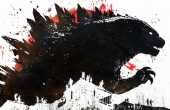
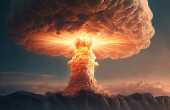

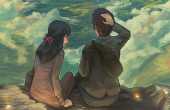
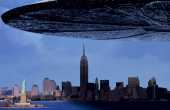
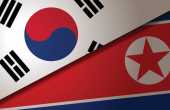
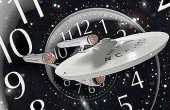
Really interesting and thoughtful piece of writing here. Thank you for contributing. Got me thinking.